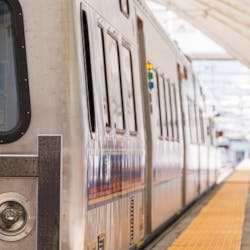RTD selects HDR for northwest rail feasibility study
The Regional Transportation District (RTD) in Denver, Colo., has selected HDR Engineering Inc. to conduct a feasibility study regarding a peak service rail schedule between Denver Union Station and downtown Longmont.
HDR was among three qualified firms to submit proposals for the Northwest Rail Line Peak Service Study following the approval of the RTD Board in August 2021 to examine the service’s feasibility.
The approximately two-year study will aim to provide updated engineering and cost estimates to determine recommendations for service to northwestern metropolitan communities, which include Broomfield, Louisville, Boulder and Longmont. Additional goals include positioning the project for the possibility of federal funding, planning peak service to allow for future build-out of the Northwest Rail Line and aligning RTD strategically with the agency’s stated goals of partnering with agencies such as the Front Range Passenger Rail Service and the Colorado Department of Transportation.
“This feasibility study will provide RTD with public input and 2022 data that will enable the agency and interested parties to utilize a common set of facts in determining how best to serve the northern suburbs within the district,” said RTD General Manager and CEO Debra A. Johnson. "Like taxpayers throughout RTD’s service area, residents of these communities have contributed to the FasTracks transit-expansion program since its approval 18 years ago, and they continue to express their support for rail service to this part of the region. I anticipate that the collective efforts with HDR Engineering will advance the path forward in a meaningful way."
“The HDR team is uniquely qualified to take on this challenge with a depth of talent, experience and expertise, but more importantly, commitment, persistence and enthusiasm to give this study the credibility and transparency it demands,” added HDR Senior Vice President Brad Martin.
The plan will examine use of RTD’s existing B Line commuter rail alignment, along with the possibility of leasing BNSF Railway right-of-way and tracks, to extend service during peak commuting hours from Westminster Station 35.3 miles north to Boulder and Longmont.
The peak-hour service plan to be explored in the study would offer three morning trips from Longmont to Denver and three evening trips from Denver to Longmont. The peak service study will examine whether the plan would identify a viable option that would potentially enable RTD to advance service to the northwest suburbs.
At an estimated cost of $1.5 billion, the Northwest Rail Line remains the costliest of the unfinished FasTracks projects, the others being the .8-mile extension of the Central Rail Corridor, the final 5.5 miles of the N Line and the 2.5-mile extension of the Southwest Corridor. RTD estimates that, given current FasTracks funding, it could take until 2050 to complete infrastructure improvements needed to operate B Line train service throughout the day between Denver and Longmont.
FasTracks is RTD's voter-approved transit expansion program that is transforming transportation through the Denver metro region. Since 2004, RTD has built 25.1 miles of light rail track and 53 miles of commuter rail track, launched the Flatiron Flyer bus rapid transit service, and opened an intermodal hub at Union Station right in downtown Denver.


